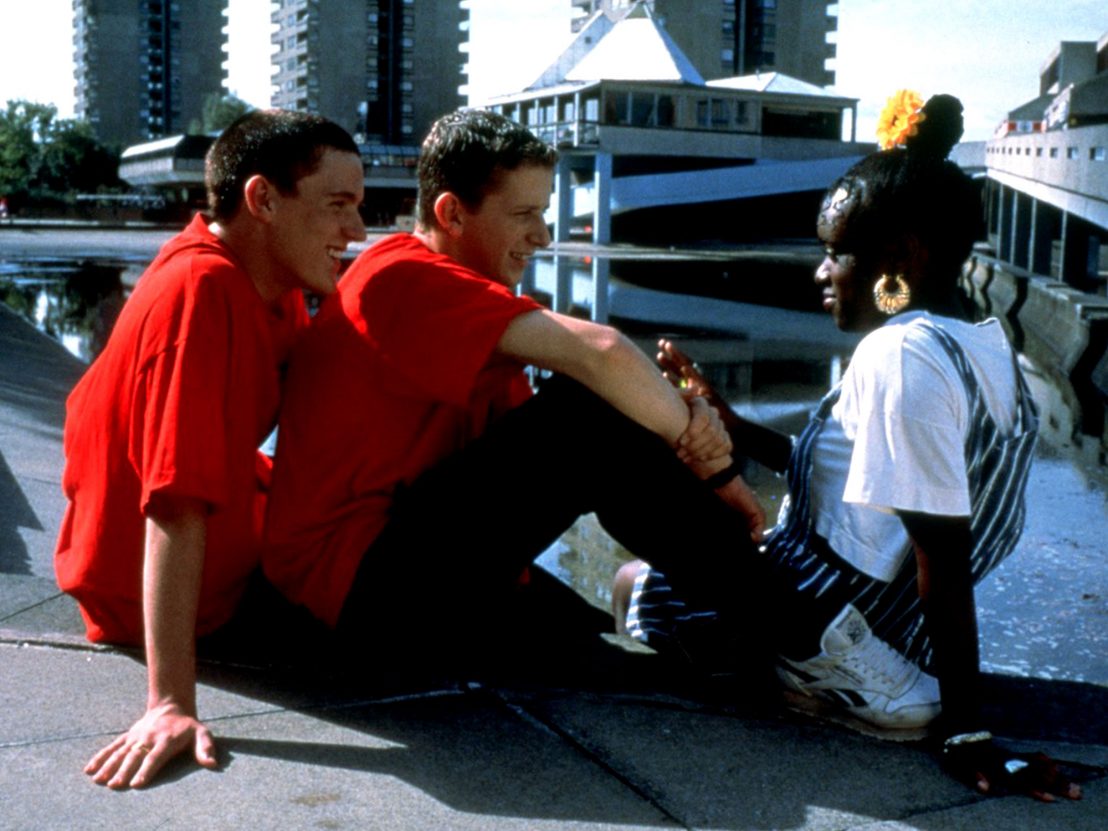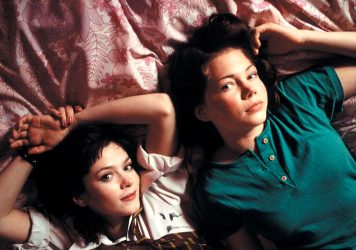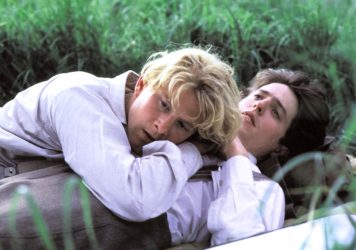
In queer British cinema, romanticism of character and place has been historically prevalent. From the whimsical Maurice, where lovers lie carefree in long grass, to the artistic license of Derek Jarman’s experimental work, period pieces and escapist dramas have long offered relief for LGBTQ+ people from late-20th-century British life.
At the other end of the spectrum sits Hettie Macdonald’s 1996 film Beautiful Thing. Here, rolling hills are replaced with high-rise tower blocks; the English countryside swapped for the narrow concrete staircases of a South East London council estate. Adapted from Jonathan Harvey’s 1993 play of the same name, Beautiful Thing marks a significant departure from the hitherto quaintness of queer British cinema – an ode to youth grounded in the reality of what it meant to grow up queer in ’90s Britain.
Rough around the edges but tender in its approach, Macdonald’s film embodies the kitchen-sink drama tradition with its focus on the private lives of an unassuming group of working-class characters. Over the course of a hot summer 16-year-old Jamie (Glen Berry) experiences a profound sexual awakening, wrestling with his feelings for the boy next door, Ste (Scott Neal). Though the pair must face up to the possible repercussions of coming out, the film’s title card has already signalled that things will turn out okay: an artificial rainbow stretches across a blue sky, an immediate and unbreakable symbol of hope.
While harm or death are all too often a common conclusion for queer characters, the film’s heartfelt handling of the tentative romance between bashful Jamie and athletic Ste sets it apart. Rooted in an instantly recognisable British summer, where cold beer cans soothe heated arguments and everyone floods outside at the first hint of sun, Beautiful Thing ties queerness to a familiar, relatable setting.
“This awkward, non-explicit scene provided a rare moment of on-screen gay intimacy accessible to young viewers.”
The first display of intimacy arrives in a slow-paced sequence when Ste sleeps over at Jamie’s to escape his abusive father and brother. He lies squished on Jamie’s bed as the latter massages peppermint lotion over his bruised back. It’s a moment of peaceful consolidation in which Jamie’s caring touches are fleeting but committed. MacDonald frames Jamie’s room like a sanctuary, cutting between tight shots of the boys’ faces as they calculate whether to act upon their growing attraction. In the context of British cinema in the 1990s, this awkward, non-explicit scene provided a rare moment of on-screen gay intimacy accessible to young viewers.
Jamie’s bedroom is not the only safe space the boys find. Flicking through a copy of Gay Times, past articles on HIV transmission and coming out to family members, Jamie finds the address of a gay pub in the area. A subtextual ode to the importance of LGBTQ+ spaces, the camera navigates the pub at eye-level with Jamie and Ste as they weave through the crowd, immersing them in an optimistic and accepting communal queer space. It is their first public outing, in both senses of the word.
Crucially, MacDonald does not isolate queerness. Underpinned by wider social factors such as class and race, her film sees Jamie taunted with homophobic slurs while friend Leah (Tameka Empson) is targeted with racist aggression. This extends beyond the world of the film: both Jamie and Ste are in education at a time where Thatcher’s Section 28, a disavowing of the ‘promotion of homosexuality’, remained in place; it would be another seven years before its repeal.
Beautiful Thing leaves us with a provocative, powerful image. Jamie and Ste sway together to Mama Cass’ ‘Dream a Little Dream of Me’ at golden hour in their concrete courtyard. Then, Leah and Jamie’s mother Sandra (Linda Henry) join them – an affectionate, almost defiant public display of queer acceptance and togetherness.
Published 21 Jun 2021

By Lydia Figes
Sandra Goldbacher’s coming-of-age drama from 2001 powerfully portrays the perils of female intimacy.

By Sam Moore
In 1976’s Sebastiane and 1986’s Caravaggio, the director refuses to relegate homosexuality to the subtext.

James Ivory and Ismail Merchant’s stunning 1987 love story prizes sensuality over intellectualism.